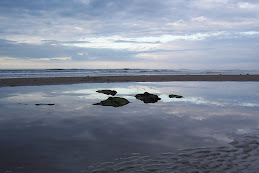Well it's gone! I have sent off my proofread manuscript to my publishers. The last few weeks have been a bit of a grind, waiting for the work to come back from the proofreader and then doing the amendments required. I thirsted for something more creative, while also being aware how important this step was and not wanting to mess it up.
To think this time last year I had 0 words and now I have 60,000 - and not just any random words, as my friend keeps pointing out - I feel quite giddy.
Wednesday
Tuesday
So we're into the second week of January and I'm slowly re-finding my rhythm of the every-day. I'm feeling excited about my book coming out and also about the other writing I hope to do.
I found this quote in the Writer's Almanac today: "Human nature seems to me like the Alps. The depths are profound, black as night, and terrifying, but the heights are equally real, uplifted in the sunshine." It came from Emily Greene Balch. Not a woman I had ever heard of, but someone I feel I ought to have known about. Working in the late 19th century and into the 20th, she wrote a number of books which helped bring about social reform. She co-founded the Women's International League of Peace and Freedom and in 1946 was awarded the Nobel Peace Prize.
I was struck by her quote, firstly because I think it true and secondly because I will be headed to the Alps later this year for a holiday. Switzerland being my birth place, rightly or wrongly, I do feel an affinity for them. I am very interested in the depths of human nature, but would equally like my head in the sunshine at times this year.
I found this quote in the Writer's Almanac today: "Human nature seems to me like the Alps. The depths are profound, black as night, and terrifying, but the heights are equally real, uplifted in the sunshine." It came from Emily Greene Balch. Not a woman I had ever heard of, but someone I feel I ought to have known about. Working in the late 19th century and into the 20th, she wrote a number of books which helped bring about social reform. She co-founded the Women's International League of Peace and Freedom and in 1946 was awarded the Nobel Peace Prize.
I was struck by her quote, firstly because I think it true and secondly because I will be headed to the Alps later this year for a holiday. Switzerland being my birth place, rightly or wrongly, I do feel an affinity for them. I am very interested in the depths of human nature, but would equally like my head in the sunshine at times this year.
Wednesday
So 2013 begins and I look forward to getting on with more of my creative and writing projects. Increasingly these seem to be having a greater presence in my life and this is rewarding to me.
Before the yuletide festivities I did something I'd never done before: I threw away a book (or, at least, put it in the recycling bin). I read Ann Tracy's "Winter Hunger" and was absolutely chilled by it, especially the ending. I can't decide whether it was the woman eating her baby or her husband, or the neighbours doing nothing to intervene, which got to me the most. I didn't want it on my shelf, in my house. Usually when I don't want a book anymore, I pass it on to someone else or take it to a charity shop. This time, though, I couldn't even bring myself to do that. So it was into the recycling it went.
I was amazed at the strength of my reaction - I still am - which is, no doubt, a testament to Tracy's writing. Though I still wonder at using this skill to present such an unrelentingly bleak view of human nature (and no I don't agree with the blurb which suggests Tracy makes the case for it being the landscape that "abhors the human presence" and puts in train the catastrophic events). Wouldn't it have been better to use her talent to another end? But perhaps there is no "better", no responsibility of that kind, in writing?
Before the yuletide festivities I did something I'd never done before: I threw away a book (or, at least, put it in the recycling bin). I read Ann Tracy's "Winter Hunger" and was absolutely chilled by it, especially the ending. I can't decide whether it was the woman eating her baby or her husband, or the neighbours doing nothing to intervene, which got to me the most. I didn't want it on my shelf, in my house. Usually when I don't want a book anymore, I pass it on to someone else or take it to a charity shop. This time, though, I couldn't even bring myself to do that. So it was into the recycling it went.
I was amazed at the strength of my reaction - I still am - which is, no doubt, a testament to Tracy's writing. Though I still wonder at using this skill to present such an unrelentingly bleak view of human nature (and no I don't agree with the blurb which suggests Tracy makes the case for it being the landscape that "abhors the human presence" and puts in train the catastrophic events). Wouldn't it have been better to use her talent to another end? But perhaps there is no "better", no responsibility of that kind, in writing?
Subscribe to:
Comments (Atom)


